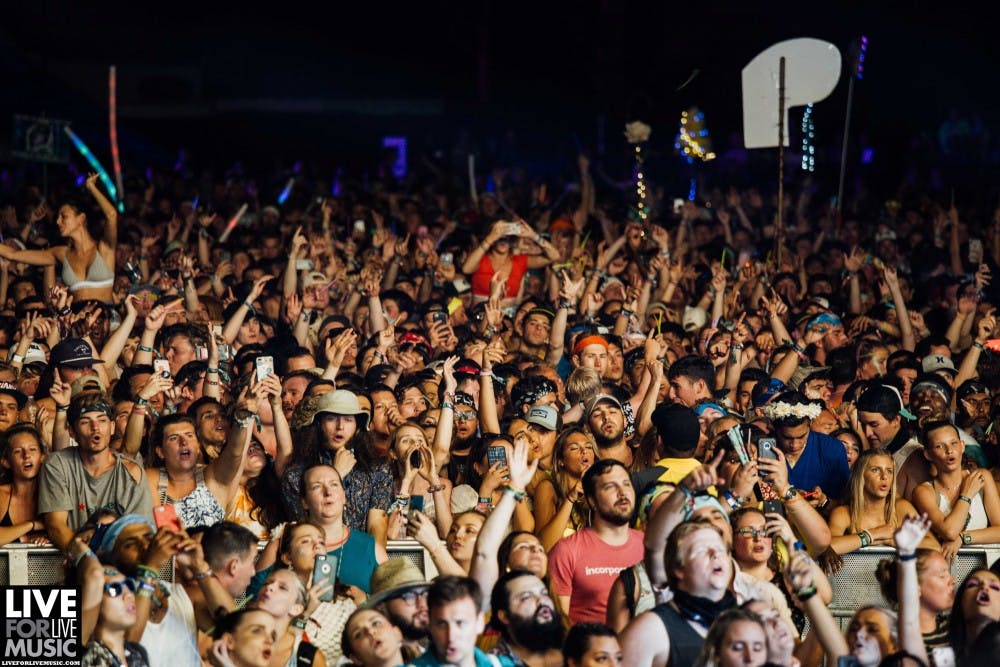Almost every music fan has found themselves scrounging for tickets on Live Nation or Ticketmaster's website at least once before. The prevalence of these two agencies in the concert–going process isn't anything new. However, many aren't familiar with the history of the companies themselves and the huge role they play in shaping the live music industry.
Way back in 2010 the United States Justice Department facilitated a merger between Live Nation and Ticketmaster, the two biggest companies in live music. Live Nation was the world’s dominant concert promoter, while Ticketmaster Entertainment was the dominant ticket provider. Now, jointly, they are known as Live Nation Entertainment.
At the time of the merger, federal officials addressed concerns regarding a monopoly in the live music industry by stating that the merger assured healthy competition for smaller firms, and that there were measures in place to prohibit monopolistic actions. However, almost 10 years later, the ticketing industry is controlled almost entirely by Live Nation Entertainment, with soaring ticket prices and service fees.
The way the live music industry has operated in the past is through collaboration between a number of parties, including promoters, talent agents, and venues. However, Live Nation Entertainment has taken over each of these sectors. As of 2018, Live Nation Entertainment controls more than 200 venues globally, promotes more than 30,000 shows per year, and sells around 500 million tickets worldwide.

With control over all these aspects of the ticketing business, Live Nation Entertainment has major control over ticket prices. Live Nation markets add–ons such as service fees, promoting fees, and processing fees (which average 27 percent of the ticket cost) as just an extension of the ticket price. There is a lack of transparency regarding the true value of concert tickets, yet customers can’t really turn to another ticket selling company because of Live Nation Entertainment's industry dominance.
Although ticket prices are higher than ever now, it's not entirely due to Live Nation Entertainment's monopoly in the marketplace. Over the last few years, artists have become more reliant on tour income because of decreasing record sales, while fan demand for concerts have increased.
Live Nation Entertainment is able to continuously lock down so many big artists, because of how much capital the firm has. The company has multiple streams of revenue, from sponsorships to the concert venues they own. However, the majority of their profit is generated from ticket sales. Live Nation Entertainment is able to give artists a large percentage of ticket shares, making them an appealing company to work with.
However, since the merger, Ticketmaster has been accused on multiple occasions of manipulative practices. On one occasion, the company displayed "No Tickets Found" on their website for Bruce Springsteen concerts in order to direct customers to its affiliate, TicketsNow, where the tickets were being "resold" for much higher prices.

Just a month ago, Democratic senators Amy Klobuchar of Minnesota and Richard Blumenthal of Connecticut called for a federal antitrust investigation of Live Nation Entertainment. In a letter to the Justice Department, they wrote, “The ticketing industry is broken. We strongly urge you to investigate this market and take any actions necessary to ensure that it serves the public.” In response, Live Nation Entertainment accused the senators of misunderstanding the ticketing industry, assuring them that they always comply with ticket agreement obligations.
A single company controlling the music industry business is not necessarily a bad thing. For example, the process behind running a concert becomes much more streamlined and efficient. Artists really only need to be working with one vendor instead of keeping track of multiple. However, Live Nation Entertainment’s monopoly in the marketplace crosses a line when they take advantage of their customer’s lack of alternative ticketing venues.
At the end of the day, music fans just want to have the opportunity to see their favorite artists live, and soaring ticket prices limits the audience to fans who are able to expend a lot of money. The fact that government officials are still raising issue with Live Nation Entertainment almost ten years after the merger emphasizes that this problem will only continue. Unless the company gets broken up or regulations become more strict, the future of live music entertainment might start looking worse for concertgoers and artists alike.

